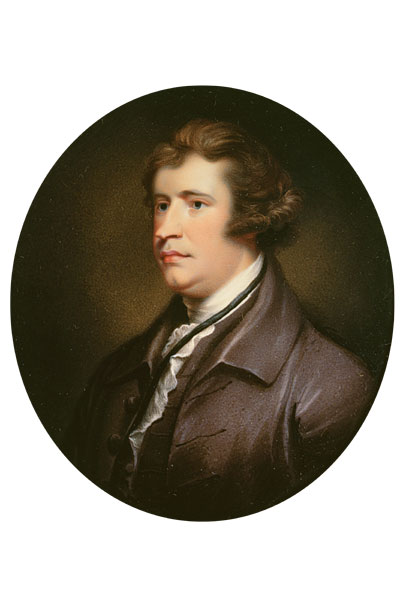There has been a lot of talk about Jesse Norman’s book on Edmund Burke, and deservedly so for it’s a good book – accessible, learned and relevant.
Burke is, I suspect, one of the great unread authors; but he’s worth studying because he’s influenced so many of our past and present concerns. The place of tradition is one example; Burke sometimes defended traditions for their own sake, and one wonders what he might have made of gay marriage, the ‘snooper’s charter’ or the European Union. And his conception of the individual’s relationship with society (which one might broadly define as the institutions and ‘little platoons’ that make the nation state) is another example. As Jesse Norman puts it in an interview with the Spectator published today:
‘Burke has a completely different concept [to Hobbes and Rousseau] of the social contract. He doesn’t think individuals should be considered in that theoretic way. On the contrary, he thinks individuals should be embodied as culturally engaged individuals: molecularly rather than atomically. He thinks institutions themselves cannot just be thought of as groups of individuals. Therefore he has got a much knottier conception of society. Burke would say we cannot understand the notion of an independent human society. He would argue that it is the state of nature to be in society.’
Philip Collins, the Times columnist, has adopted this theme, arguing that Burke’s faith in society and his critique of individualism and personal corruption (see his almost mad pursuit of Warren Hastings) make him an influence on the left in 2013.
Burke might have been suspicious of Ed Miliband’s ill-defined politics; scenting, perhaps, the fetid whiff of ideology, of which Burke most definitely disapproved. But Collins is on to something, at least where conservatism is concerned. Jesse Norman says that Burke saw society as ‘an enabler of wellbeing’. It’s a striking phrase, contrasting with the rhetoric favoured by many libertarians and neo-liberals. It is, for example, the very opposite of the incantation to ‘get the state out of the way’ and leave us all be. Edmund Burke may have been the father of modern conservatism; but his blood seems to run thinner through those particular post-modern varieties.
Of course, the two examples quoted at the outset are related: an argument in favour of institutions can transform into an argument in favour of the continuity of tradition, so that those institutions can still shape individuals. No institution is static; but it is a weakness of Burke that the distinction he drew between ‘reform’ and ‘change’ left enough room for some to conclude, on occasion, that there is no difference so both must be resisted.
This may not have been a grave problem in an essentially autocratic system; but it can be a very serious problem in a system of universal suffrage where the definition of an institution is not fixed, particularly for a party that defines itself, to an extent, on defending tradition.
Many unaligned voters are perplexed by modern conservatism, which is largely an alliance of neo-liberals and social conservatives. Indeed, these apparent multitudes sometimes exist within the heart of one person. Some traditions and institutions (such as marriage, which many on the right have defended) are more obvious to conservatives than others (such as the collective and individual rights embedded in employment law, which many on the right challenge). How can, the unaligned voter might ask, these people contain such contradictions?
A question for the heirs of Burke (particularly the socially conservative ones) is whether modern society has outgrown the straight interpretation of his conception of tradition and reform. Given that Burke – and other Whigs – understood history to unfold gradually, it is not unreasonable to assume that it has. This would not require a huge leap; the neo-liberal dimension of their being has already made it.






Comments